I. Introduction
Nestled amidst the picturesque countryside of Eton, Berkshire, England, stands Eton College, a venerable institution that has graced the educational landscape for over five centuries. It is just across the River Thames, about a 15-minute walk from Windsor Castle. Founded in 1440 by King Henry VI, Eton College has emerged as a cornerstone of British education, nurturing the minds and shaping the destinies of generations of young men.
Eton College holds a unique position in the annals of British education. Renowned for its academic rigour, rich traditions, and illustrious alumni, Eton has consistently produced individuals who have significantly contributed to British society, shaping the nation’s political, cultural, and intellectual landscape.
Eton College is characterised by several distinctive features that have contributed to its enduring legacy. Its unwavering commitment to academic excellence and its emphasis on holistic development has fostered well-rounded individuals prepared to excel in diverse fields.
II. Historical Overview of Eton College Windsor

A. Founding and Early Years (1440-1600)
1. The Vision of King Henry VI
Eton College emerged from the visionary mind of King Henry VI, a monarch deeply committed to education and scholarship. During his reign, England experienced a burgeoning intellectual and cultural renaissance. Henry VI sought to foster this spirit of learning by establishing educational institutions that would nurture the minds of future generations.
Inspired by the educational ideals of his time, particularly the advancements in classical learning, Henry VI envisioned a school that would provide a rigorous education to promising young scholars, preparing them for future leadership roles in the Church and state. He believed that a strong foundation in classical subjects and an emphasis on moral development and Christian values would produce well-rounded individuals capable of shaping the nation’s future.
- Also, read Windsor Castle Changing of the Guard: Where History Coming Alive.
- Also, read Windsor Castle Tour: A Comprehensive and Best Guide.
- Who Lives in the Windsor Castle?
2. Establishment of Eton College in 1440
In 1440, Henry VI’s vision materialized with the royal charter establishing Eton College. The school was initially named “Kynge’s College of Our Ladye of Eton besyde Windesore,” reflecting its dedication to the Virgin Mary and its proximity to Windsor Castle, the royal residence. Notably, Eton College was modelled after Winchester College, another prestigious institution founded by William Wykeham (mentioned later). This connection to Winchester underscores Henry VI’s desire to create a centre of learning that rivalled the existing educational institutions and nurtured future leaders.
The school’s foundation marked a significant step in Henry VI’s quest to promote education and cultivate a new generation of learned and virtuous leaders. The school’s initial enrollment consisted of 70 scholars, known as King’s Scholars, who were selected based on merit and financial need. These scholars were provided free tuition, lodging, and board, ensuring that promising students from all social backgrounds had access to a quality education.
3. Early Curriculum and Structure of the School
Eton College’s early curriculum reflected the prevailing educational philosophy of the time, emphasising classical subjects such as Latin, Greek, and rhetoric. These subjects were essential for developing critical thinking skills, mastering language’s intricacies, and understanding Western civilisation’s foundations.
The school’s structure mirrored the hierarchical organisation of society, with a headmaster overseeing a faculty of chaplains and fellows. The headmaster, appointed by the king, held supreme authority within the school, responsible for maintaining discipline, overseeing instruction, and upholding the school’s ethos.
4. Notable Figures Associated with Eton College during the Early Years
a) William Wayneflete:
William Wayneflete, a prominent scholar and churchman, was appointed Eton College’s first headmaster in 1442. A close confidant of King Henry VI, Wayneflete shared the monarch’s vision for Eton College as a center of learning and leadership. He played a crucial role in shaping the school’s curriculum and establishing its ethos, emphasizing academic rigor, moral development, and Christian values.
Under Wayneflete’s leadership, Eton College quickly gained recognition for its academic excellence, attracting students from prominent families nationwide. He introduced a rigorous curriculum focused on classical subjects like Latin, Greek, and rhetoric, preparing students for further studies at universities such as Oxford and Cambridge. Wayneflete’s dedication to academic excellence set the stage for Eton College’s enduring reputation as a leading educational institution.
b) John Rous
John Rous, a scholar and chantry priest at Eton College, is known for his meticulous records of the school’s early years. His detailed chronicles, known as the “Rous Rolls,” provide valuable insights into the school’s administration, curriculum, and daily life. Rous’s dedication to preserving Eton College’s history has ensured its legacy remains intact, allowing future generations to understand its origins and evolution.
c) William of Wykeham
William of Wykeham, a prominent educator and statesman, served as Bishop of Winchester and significantly shaped Eton College’s structure and curriculum. His educational reforms, implemented at Winchester College and later adopted at Eton College, emphasised a holistic approach to education, balancing academic rigour with moral development and practical skills.
Wykeham’s emphasis on moral development and practical skills, coupled with his insistence on academic excellence, contributed to Eton College’s reputation as a school that produced well-rounded individuals prepared for leadership in various spheres of life. His educational reforms had a lasting impact on Eton College and influenced educational practices across England.
5. Notable Alumni: Shaping the Nation’s Future
Eton College’s early years produced a remarkable array of notable alumni who made significant contributions to British society. Among them were:
- Sir William Cecil, Lord Burghley: A prominent statesman and advisor to Queen Elizabeth I, Cecil was instrumental in shaping England’s domestic and foreign policies during significant political and religious upheaval.
- Sir Henry Wotton: A distinguished diplomat, poet, and scholar, Wotton served as England’s ambassador to various European courts and was a prominent figure in the literary and cultural circles of his time.
These individuals, along with many other notable alumni, exemplified the school’s commitment to producing well-rounded leaders prepared to serve their country and contribute to the advancement of society. Eton’s early alumni, not just statesmen and diplomats, went on to become influential figures in various fields.
- Also, read Windsor Castle Opening Times: Everything You Need to Know.
- Also, read Windsor Castle Tickets: A Proven Comprehensive Guide.
B. The Elizabethan Era and Beyond (1558-1700)

1. Expansion of Eton College under Queen Elizabeth I
The reign of Queen Elizabeth I (1558-1603) marked a period of significant growth and expansion for Eton College. Under her patronage, the school experienced a surge in enrollment, attracting students from prominent families across England. This expansion was fueled by the school’s reputation for academic excellence, emphasis on moral development, and commitment to producing well-rounded individuals capable of serving their country.
Eton College undertook substantial physical expansion to accommodate the increasing number of students. New buildings, including classrooms, dormitories, and a library, provided the necessary facilities to support the growing student body and evolving curriculum.
2. Emergence of Eton College as a Leading Educational Institution
Eton College’s reputation as a leading educational institution solidified during the Elizabethan era. The school’s commitment to academic rigour, its focus on classical subjects, and its emphasis on holistic development attracted students from the upper echelons of English society.
The school’s faculty included some of the most distinguished scholars of the time, ensuring students received a high-quality education. Eton College’s curriculum was regularly updated to reflect the advancements in knowledge and the changing needs of society.
In addition to its academic excellence, Eton College was recognised for shaping moral character and fostering leadership qualities. The school’s emphasis on Christian values, discipline, and service to others prepared its students for responsible societal leadership roles.
3. Introduction of New Subjects and Teaching Methods
The Elizabethan era witnessed the introduction of new subjects to Eton College’s curriculum, reflecting the broadening scope of knowledge and the evolving needs of society. Subjects such as mathematics, science, and modern languages were gradually incorporated into the curriculum, providing students with a more comprehensive education.
Innovative teaching methods were also adopted, along with introducing new subjects. Using debates, dialogues, and interactive learning techniques enhanced students’ engagement and promoted critical thinking skills.
These advancements in curriculum and teaching methods ensured that Eton College remained at the forefront of educational innovation, preparing its students for the challenges and opportunities of the changing world.
- Also, read Windsor Castle Tickets Advantage Card: Know Everything.
- Also, read The Windsor Castle Dogs.
4. Notable Alumni of Eton College during the Elizabethan Era and Beyond

a) Sir Francis Walsingham (1532-1590):
A pivotal figure in Queen Elizabeth I’s court, Sir Francis Walsingham served as her Principal Secretary and was widely regarded as the “Queen’s Spymaster.” His astute political acumen and intelligence network were crucial in safeguarding England’s security during intense political and religious turmoil.
Walsingham’s education at Eton College laid the foundation for his exceptional intelligence and analytical skills. His mastery of languages and ability to decipher coded messages proved invaluable in his espionage activities. His diplomatic finesse and understanding of international affairs made him an indispensable advisor to the Queen.
b) Sir Edward Coke (1551-1634):
Sir Edward Coke, a prominent jurist and Lord Chief Justice left an enduring legacy in English common law. His contributions to legal scholarship and his unwavering commitment to upholding justice shaped the English legal system for centuries.
Coke’s education at Eton College instilled a profound respect for the law and a deep understanding of legal principles. His unwavering pursuit of justice and dedication to upholding the rule of law earned him a reputation as one of England’s most esteemed jurists.
c) John Milton (1608-1674):
John Milton, a renowned poet and prose writer, is a towering figure in English literature. His epic poems, including “Paradise Lost” and “Paradise Regained,” remain timeless masterpieces that inspire and challenge readers.
Milton’s education at Eton College nurtured his passion for language and literature. His exposure to classical texts and his mastery of rhetoric laid the foundation for his poetic genius. His works showcase his literary prowess and reflect his deep moral and philosophical concerns.
d) Beyond the Elizabethan Era
The Elizabethan Era began Eton College’s remarkable legacy of producing exceptional individuals. Numerous alumni continued to make significant contributions to British society and beyond, extending far beyond the boundaries of the school’s walls.
e) In the Realm of Politics and Diplomacy
Numerous Etonian alumni rose to prominence in the political and diplomatic spheres, shaping British history. Among them were:
- George Canning (1770-1827): A distinguished statesman and Foreign Secretary, Canning played a pivotal role in expanding British influence and maintaining international peace.
- Henry John Temple, 3rd Viscount Palmerston (1784-1865): A charismatic and influential statesman, Palmerston served as Prime Minister of the United Kingdom for over a decade, guiding the country through significant change and expansion.
f) In the World of Literature and the Arts
Eton College also produced many literary and artistic luminaries who enriched British culture. Notable alumni included:
- Horace Walpole (1717-1797): A prolific writer and art historian, Walpole left behind a vast collection of letters and memoirs that provide valuable insights into 18th-century society.
- Percy Bysshe Shelley (1792-1822): A Romantic poet known for his lyrical prowess and radical ideas, Shelley’s works continue to be admired for their beauty and emotional intensity.
- Also, read How Far is Windsor Castle from Buckingham Palace? Royal Mile?
- Also, read Devastating Timeline of the Windsor Castle Fire 1992.
C. The 18th and 19th Centuries

The 18th and 19th centuries were marked by profound social, political, and intellectual transformations that swept across Britain, and Eton College was not immune to these sweeping changes. The school faced the challenge of adapting to a rapidly evolving world while maintaining its core values and academic excellence.
1. Social and Political Changes Affecting Eton College
The Industrial Revolution significantly changed British society with its urbanisation and social upheavals. The rise of the middle class and the increasing demand for education challenged traditional social hierarchies and educational norms.
Eton College, as an institution deeply rooted in the traditions of the aristocracy, was not unaffected by these changes. The school faced pressure to adapt its curriculum and admissions policies to accommodate the changing social landscape.
2. Reforms and Modernisation of the School’s Curriculum
In response to the changing social and intellectual landscape, Eton College embarked on a gradual process of curriculum reform during the 18th and 19th centuries. While the school’s core focus on classical languages and literature remained central, new subjects such as mathematics, science, and modern languages began to be introduced.
This curriculum modernisation reflected a growing recognition that Etonians needed to be prepared for a world increasingly shaped by scientific and technological advancements. The introduction of new subjects aimed to provide students with a more well-rounded education, equipping them for success in various fields beyond traditional aristocratic pursuits. However, it’s important to note that these new additions were likely offered selectively, perhaps as electives or for older students, rather than becoming a dominant part of the core curriculum.
3. Expansion of Eton College’s Campus and Facilities
As the school’s enrollment grew and its curriculum expanded, Eton College underwent significant physical transformations. The campus was enlarged with new buildings, including classrooms, dormitories, and recreational facilities.
These expansions were necessary to accommodate the growing student body and to provide the necessary infrastructure for the modernised curriculum. The school’s commitment to providing a holistic learning environment extended beyond academics, encompassing physical education, sports, and extracurricular activities.
- Also, read The Windsor Castle Fire 1992: A Historical Catastrophe.
- Also, read The Windsor Castle Fire Salvage Operation 1992.
4. Notable Alumni of Eton College during the 18th and 19th Centuries
a) Arthur Wellesley, 1st Duke of Wellington (1769-1852)
Arthur Wellesley, 1st Duke of Wellington, is one of Eton College’s most illustrious alumni. His military prowess and strategic brilliance played a pivotal role in defeating Napoleon Bonaparte’s forces during the Peninsular War and at the Battle of Waterloo. Wellington’s leadership and tactical acumen earned him the admiration of his contemporaries and cemented his reputation as one of the finest military commanders in history.
Beyond his military achievements, Wellington served twice as Prime Minister of the United Kingdom, demonstrating his political acumen and commitment to public service. His legacy extends beyond the battlefield, encompassing his contributions to British politics and society.
b) William Henry Cavendish, 7th Duke of Devonshire (1808-1891)
William Henry Cavendish, 7th Duke of Devonshire, epitomised the 19th-century aristocrat who embraced progress and championed social reform. His political career spanned over four decades, during which he served as Lord Chancellor and held prominent positions in various governments.
Devonshire’s influence extended beyond the political sphere. He was a passionate patron of science and industry, supporting scientific advancements and technological innovations. His commitment to progress and willingness to challenge traditional norms made him a respected and influential figure in Victorian society.
d) Beyond the Elite:
During the 18th and 19th centuries, Eton College’s alumni extended beyond politics and aristocracy. The school produced a remarkable array of individuals who excelled in various fields, including science, literature, and the arts.
- Sir Humphry Davy (1778-1829): A pioneering chemist and inventor, Davy made significant contributions to electrochemistry and agricultural chemistry. His discoveries had a profound impact on scientific understanding and technological advancements.
- Lord Byron (1788-1824): A celebrated Romantic poet, Byron’s rebellious spirit and captivating verses captured the imagination of readers worldwide. His works continue to be admired for their emotional intensity and literary brilliance.
William Ewart Gladstone (1809-1898):
William Ewart Gladstone, a towering figure in British politics, left an enduring legacy as a four-time Prime Minister of the United Kingdom. His tenure was marked by a commitment to social reform, including expanding voting rights, introducing free schools, and improving working conditions.
Gladstone’s political philosophy was rooted in moral principles and a deep concern for the welfare of the less fortunate. His eloquence, intellectual prowess and dedication to public service earned him the admiration of his supporters and the respect of his opponents.
- Also, read The Extent of Damage to Windsor Castle Due to the 1992 Fire.
- Also, read Restoration of Windsor Castle after Devastating Fire in 1992.
D. Eton College in the 20th and 21st Centuries

The 20th and 21st centuries have presented Eton College with challenges and opportunities, demanding adaptability and innovation while maintaining its core values and reputation for academic excellence. The school’s journey through these transformative periods reflects its resilience and commitment to nurturing exceptional minds.
1. Eton College during the World Wars and Post-War Era
The 20th century dawned with the outbreak of World War I, which had a profound impact on Eton College. The school lost many alumni to the war, and its campus was transformed into a military hospital. Despite these challenges, Eton College continued its educational mission, adapting its curriculum and activities to accommodate the wartime context.
The post-war era brought further changes and challenges. The rise of new social and economic realities necessitated a reassessment of the school’s role and relevance in a changing world. Eton College responded by embracing reforms that expanded its admissions criteria and strengthened its focus on academic rigour and holistic development.
2. Embracing Social and Educational Reforms
In response to the changing social landscape, Eton College undertook significant reforms to broaden its admissions base and make the school more accessible to a wider range of students. The introduction of bursaries and scholarships enabled talented students from diverse backgrounds to attend the school, regardless of their financial circumstances.
The school also embraced educational reforms, adapting its curriculum to reflect the evolving needs of the 21st century. The introduction of new subjects, such as technology and computer science, alongside its traditional focus on classical languages and literature, ensured that Etonians were prepared for the challenges and opportunities of the modern world.
3. Maintaining Eton College’s Reputation as a Leading School
Despite the challenges and changes of the 20th and 21st centuries, Eton College has maintained its reputation as one of the world’s leading educational institutions. The school’s commitment to academic excellence, its emphasis on holistic development, and its dedication to nurturing exceptional individuals have remained unwavering.
Eton College continues to attract students from diverse backgrounds and nationalities, providing them with a rigorous academic foundation and a well-rounded education that prepares them for leadership roles in various fields. The school’s alumni continue to significantly contribute to British society and beyond, leaving an indelible mark on various sectors, including politics, business, science, the arts, and academia.
- Also, read State Apartments at Windsor Castle: An Ultimate Guide.
- Also, read St. George’s Chapel at Windsor Castle in History & Today.
4. Notable Alumni of Eton College during the 20th and 21st Centuries

The 20th and 21st centuries witnessed a remarkable array of notable alumni from Eton College, who left an indelible mark on British society and the world. These individuals excelled in various fields, including politics, business, science, literature, and the arts, demonstrating the school’s enduring legacy of producing exceptional minds.
a) Political Leaders
Eton College continued to produce prominent political leaders throughout the 20th and 21st centuries. Among them were:
- Harold Macmillan (1890-1980): A towering figure in British politics, Macmillan served as Prime Minister of the United Kingdom from 1959 to 1963. His leadership during a period of significant change and challenge earned him the respect of his contemporaries.
- David Cameron (born 1966): Prime Minister of the United Kingdom from 2010 to 2016, Cameron led the Conservative Party to victory in two general elections and played a prominent role on the international stage. His policies and political manoeuvring continue to shape British politics.
- Boris Johnson (born 1964): Prime Minister of the United Kingdom from 2019 to 2022; Johnson’s career has been marked by his charismatic personality, controversial views, and pivotal role in the Brexit campaign. His leadership style and policies have left a lasting impact on British politics.
b) Business Leaders: Pioneers and Innovators
Eton College’s alumni have also made significant contributions to the business world, establishing themselves as entrepreneurs, CEOs, and industry pioneers. Notable examples include:
- Sir Simon Robertson (born 1944): A prominent businessman and philanthropist, Robertson co-founded Dixons Group, a leading electronics retailer, and played a crucial role in revitalising the city of Manchester.
- Sir Martin Sorrell (born 1945): A global media and advertising mogul, Sorrell founded WPP, the world’s largest advertising and marketing group, and has spearheaded numerous media acquisitions and innovations.
- Sir Charles Dunstone (born 1961): A successful entrepreneur and tech innovator, Dunstone co-founded Carphone Warehouse, a leading telecommunications retailer, and has been instrumental in shaping the UK’s mobile phone industry.
c) Creative Minds
Eton College’s alumni have also enriched the cultural landscape by contributing to literature, art, and other creative fields. Notable examples include:
- Aldous Huxley (1894-1963): A renowned novelist and essayist, Huxley’s works, including “Brave New World,” explored social and philosophical themes with wit and insight, impacting literature and science fiction.
- Ian Fleming (1908-1964): The creator of the iconic James Bond character, Fleming’s novels and short stories captivated readers worldwide with their blend of espionage, adventure, and international intrigue, establishing a genre and influencing popular culture.
- Sir David Attenborough (born 1926): A celebrated broadcaster, natural historian, and environmentalist, Attenborough has captivated audiences worldwide with his documentaries and books, raising awareness of the natural world and inspiring conservation efforts.
- Also, read Queen Mary’s Dollhouse at Windsor Castle.
- Also, read Windsor Great Park: A Legacy of History, Nature, and Royal Heritage.
III. Eton College Life: Academics, Extracurricular Activities, and Traditions

Eton College, a renowned institution steeped in history and tradition, fosters an environment that balances academic rigour with a vibrant extracurricular life and a strong sense of community.
A. Academic Rigor and Excellence at Eton College
Eton College’s academic reputation precedes it, maintaining high standards and rigorous academic expectations for its students. The school offers a wide range of subjects, including traditional classics and modern languages, as well as science, mathematics, and creative pursuits.
Eton’s emphasis on academic excellence is evident in its impressive examination results, with students consistently achieving top marks in national and international competitions. The school’s dedication to fostering intellectual curiosity and critical thinking ensures its graduates are well-equipped to excel in various academic fields.
B. Diverse Extracurricular Activities and Clubs
Beyond the classroom, Eton College offers many extracurricular activities catering to diverse interests and talents. Students can immerse themselves in sports, music, drama, debating, and various other pursuits, providing opportunities for personal growth, leadership development, and community engagement.
The school’s extracurricular offerings foster students’ strong sense of belonging and identity as they find their passions and connect with like-minded individuals. The vibrant extracurricular life at Eton College enriches the overall student experience, providing opportunities to develop skills, explore interests, and connect with peers.
C. Preserved Traditions and Unique Etonian Customs
Eton College is renowned for its rich traditions, deeply embedded in its culture and identity. These traditions, such as the annual Wall Game match and the annual Speech Day ceremony, provide a sense of continuity and shared experience for generations of Etonians. The school also boasts unique customs, like using Latin in certain school announcements and wearing distinctive uniforms, adding a touch of distinctiveness to Eton College life. These traditions foster a sense of belonging and historical connection among students, reinforcing the school’s unique identity.
D. The House System and Its Significance in Eton College Life
The House system at Eton College plays a central role in shaping the school’s social dynamics and fostering a sense of community. Each house comprises approximately 30 boys, with their housemaster, house colours, and a unique ethos.
The house system encourages competition and rivalry among houses, with inter-house competitions in sports, debating, and other activities. However, it also fosters a strong sense of camaraderie and belonging within each house, providing a support network for students.
The house system is a fundamental aspect of Eton College life, shaping the social environment, fostering a sense of identity, and promoting student teamwork and leadership. It contributes to the overall Etonian experience, creating a vibrant and inclusive community within the school.
IV. Eton College: Embracing Diversity and Inclusion
Eton College, a renowned educational institution with a rich history, has embarked on a journey to embrace diversity and inclusion, acknowledging the need to evolve its practices and foster a more inclusive environment for students from all backgrounds.
A. Addressing Historical Issues and Evolving Attitudes
Eton College has openly acknowledged the historical issues of elitism and privilege associated with the school. The institution has taken steps to address these issues, initiating open discussions and engaging in self-reflection to understand how its past and present practices have impacted diversity and inclusion efforts.
This commitment to self-examination has led to recognising the need to evolve attitudes and foster a more inclusive school culture. Eton College has begun addressing unconscious bias and microaggressions, promoting sensitivity and respect for all individuals.
B. Promoting Equality and Diversity at Eton College
The school has implemented various initiatives to promote equality and diversity within the student body and among the faculty and staff. These initiatives include:
- Diversity training: Providing mandatory diversity training for all staff and students to raise awareness of unconscious bias, cultural sensitivity, and inclusive practices.
- Diversifying the curriculum: Incorporating diverse perspectives and voices into the curriculum ensures that students are exposed to various viewpoints and cultural experiences.
- Celebrating diversity: Organising events and celebrations that showcase the rich diversity of the Eton College community, fostering a sense of belonging and appreciation for different cultures.
C. Expanding Access to Eton College for Students from Diverse Backgrounds
Eton College has recognised the importance of expanding access to its educational opportunities for students from diverse backgrounds, regardless of their financial circumstances. The school has implemented several initiatives to achieve this goal, including:
- Increased bursaries and scholarships: Providing financial support to talented students from underprivileged backgrounds, ensuring their socioeconomic status does not hinder their educational aspirations.
- Outreach programs: Establishing outreach programs in partnership with local schools and communities to identify and support potential candidates from diverse backgrounds.
- Transparent admissions process: Ensuring the admissions process is transparent and fair, focusing on academic merit, talent, and potential rather than solely on socioeconomic status.
D. Shaping Eton College’s Future as an Inclusive and Welcoming Institution
Eton College’s commitment to diversity and inclusion requires continuous reflection, adaptation, and improvement. The school is committed to shaping its future as an inclusive and welcoming institution where students from all backgrounds can thrive and reach their full potential.
Eton College recognises diversity as representing and creating a culture of respect, understanding, and belonging. The school is committed to fostering a learning environment where students feel valued, supported, and empowered to contribute their unique perspectives and experiences.
Eton College’s enduring legacy and commitment to innovation ensure its relevance and impact in the 21st century. The school continues to nurture exceptional individuals who will shape the future of Britain and the world while remaining true to its core values of academic excellence, holistic development, and leadership cultivation.
V. Conclusion
Eton College has established itself as a remarkable institution, shaping exceptional minds and fostering leadership qualities through its rigorous academic curriculum, diverse extracurricular activities, and rich traditions. The school’s commitment to continuous improvement and innovation ensures its relevance in the 21st century as it prepares students for a world of rapid technological advancements, global interconnectedness, and complex societal challenges. As Eton College navigates the future, its dedication to academic excellence, holistic development, and leadership cultivation remains unwavering, ensuring its enduring legacy.
VI. FAQs
1. Who are some of the famous alumni of Eton College?
Eton College, a prestigious independent school in Windsor, England, boasts an impressive roster of distinguished alumni, including Prime Ministers, renowned writers, celebrated scientists, and royal family members. Among its notable former pupils are Boris Johnson, David Cameron, Tony Blair, William Pitt the Younger, George Orwell, Aldous Huxley, Ian Fleming, Christopher Hitchens, Isaac Newton, Robert Boyle, Prince William, Prince Harry, Hugh Laurie, Benedict Cumberbatch, and Eddie Redmayne.
2. What is the acceptance rate for Eton College?
The acceptance rate for Eton College is around 13%. This means that for every 100 students who apply, only 13 are accepted.
3. What is the uniform for Eton College?
The uniform for Eton College is a traditional black and white suit. Boys must wear a white collared shirt, a black Eton jacket, black trousers, and a black bow tie. They are also required to wear black socks and black shoes.




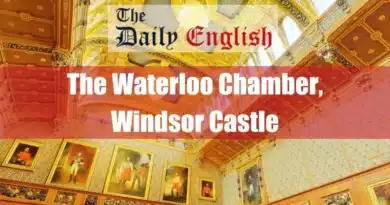
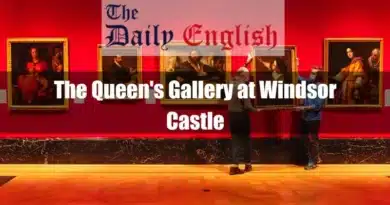
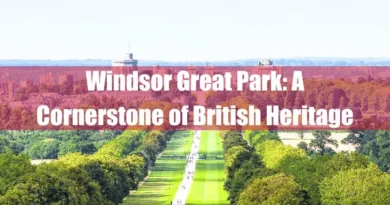

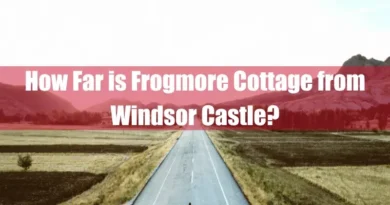
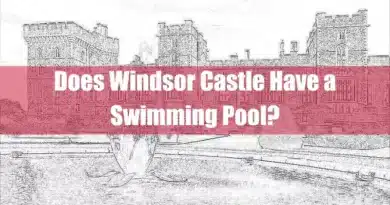
Comments are closed.